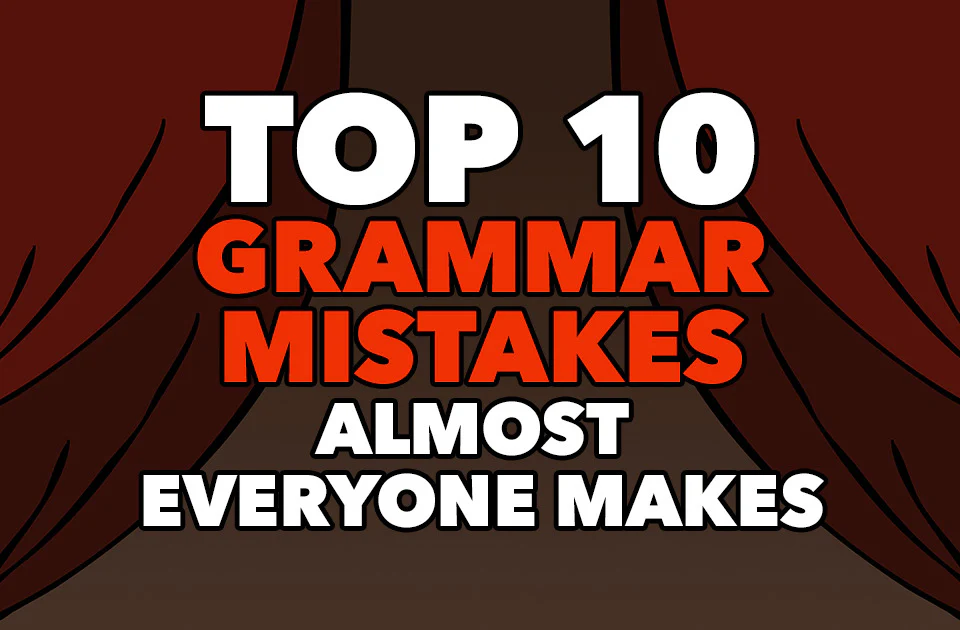Grammar is the foundation of effective communication, whether in writing or speaking. However, even proficient English speakers sometimes make common grammar mistakes. These errors can affect clarity and professionalism, especially in academic writing, job applications, and formal conversations. In this blog, we will explore the top 10 grammar mistakes and how you can avoid them.
1. Their, There, and They’re
Mistake:
- Their (possessive): “It is their book.”
- There (location): “The book is over there.”
- They’re (contraction of ‘they are’): “They’re reading the book.”
How to Avoid It:
Always determine the function of the word in your sentence. If it shows possession, use their. If it refers to a place, use there. If you can replace the word with “they are,” use they’re.
2. Your vs. You’re
Mistake:
- Your (possessive): “Is this your phone?”
- You’re (contraction of ‘you are’): “You’re going to love this.”
How to Avoid It:
If you can replace the word with “you are,” use you’re. Otherwise, use your.
3. Its vs. It’s
Mistake:
- Its (possessive): “The cat licked its paws.”
- It’s (contraction of ‘it is’): “It’s a beautiful day.”
How to Avoid It:
If the sentence makes sense when replacing it’s with “it is,” then use it’s. Otherwise, use its.
4. Affect vs. Effect
Mistake:
- Affect (verb): “The weather affects my mood.”
- Effect (noun): “The effect of the weather is noticeable.”
How to Avoid It:
Remember: Affect is an action (verb), while effect is the result (noun).
5. Then vs. Than
Mistake:
- Then (time-related): “We went to the park, then we had lunch.”
- Than (comparison): “She is taller than her brother.”
How to Avoid It:
Use then when referring to time sequences and than when making comparisons.
6. Who vs. Whom
Mistake:
- Who (subject): “Who is calling?”
- Whom (object): “To whom should I send this?”
How to Avoid It:
Try replacing who with he/she and whom with him/her to see if it makes sense.
7. Me vs. I
Mistake:
- Incorrect: “John and me went to the store.”
- Correct: “John and I went to the store.”
How to Avoid It:
Remove the other person and check if the sentence still makes sense: “Me went to the store” (incorrect) vs. “I went to the store” (correct).
8. Run-on Sentences
Mistake:
- Incorrect: “I love reading books I spend all day reading.”
- Correct: “I love reading books, and I spend all day reading.”
How to Avoid It:
Break up long sentences with commas, conjunctions, or periods for clarity.
9. Misusing Apostrophes
Mistake:
- Incorrect: “The book belong’s to Sarah.”
- Correct: “The book belongs to Sarah.”
How to Avoid It:
Apostrophes should only be used for contractions (can’t, it’s) or possession (Sarah’s book).
10. Subject-Verb Agreement
Mistake:
- Incorrect: “The team are playing well.”
- Correct: “The team is playing well.”
How to Avoid It:
Ensure that the subject and verb agree in number (singular or plural).
Final Thoughts
Grammar mistakes are common, but with practice, they can be avoided. Paying attention to details and proofreading your work can significantly improve your English writing and communication skills. Keep learning, and don’t be afraid to make mistakes—they’re part of the learning process!
Need more grammar tips? Stay connected with ZA Jasra LMS for expert guidance and courses on mastering the English language!



